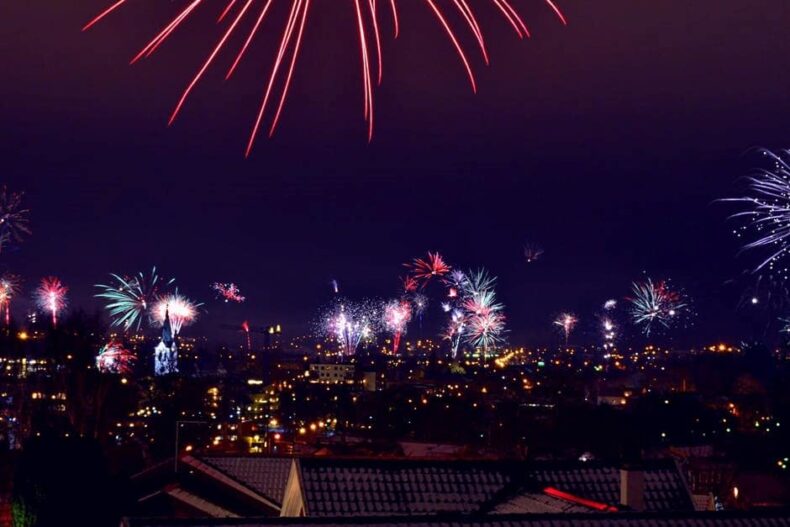The celebration of the New year has cultural and social significance. This day is a joyous occasion celebrated every year on January 1 which is according to the modern gregorian calendar, around the world. People celebrate this day with their friends and family wishing them well wishes for the next year. People get together in gatherings, cook something special and go out and even decorate their homes.
History
The concept of the New Year originated in ancient Babylon around 4,000 years ago. Babylonians made the new year a celebration of 11 days called Akitu which had different customs every day and started on the first new moon after the vernal equinox- which is around March. The festival keeps alive the memory of the fable where the sky deity Marduk triumphed over the sea goddess Tiamat, also crowning a new king or allowing the previous one to continue to rule.
Roman
It is from an ancient Roman custom, the feast of the Roman god Janus. It has been portrayed that he had two opposite faces; one looked at the past while the other saw into the future. He was the god of many things like beginnings, gates, time, duality, doorway, and endings. That is also where the name of the month of January comes from. The tradition of the new year comes from the promise Romans made to the Janus. As the year commenced it was common to swap words of wishes.
People in Greek celebrated the new year on the winter solstice, which is the shortest day of the year.
In the old days, some new years were celebrated at the equinox – a day when the sun is above the equator of the earth and days and nights are of equal length.
Significance and Traditions
A New Year is believed to be a new start/ clean slate and the opportunity to set goals and make positive changes, for people to start fresh and make some new resolutions. During this time people share meals, spent time, and hope for a good future and fortune in the commencing year. People party together and watch fireworks or some spend a jolly time at home.
Why do we celebrate the new year on January 1?
The older Roman calendar became out of date over the years and in 46 BC, Julius Caesar fixed the problem with help from the famous astronomers and mathematicians of that time; and the Julian calendar was made. This calendar is similar to the modern Gregorian calendar.
Julius Caesar made the 1st of January to celebrate the Roman god Janus.
The first time January 1 was considered the beginning of the new year was back in 45 BCE. The Roman calendar before that began in March and consisted of 355 days.
In medieval Europe, Christian authorities replaced January 1 as the beginning of the year with 25 December- the birth of Jesus Christ and 25 March- the Feast of the Annunciation- a day which had religious significance to them; which was temporary.
In 1852 January 1 was once again made a New year’s day- and celebrated since then- by Pope Gregory XIII
A New Year is believed to be a new start/ clean slate and the opportunity to set goals and make positive changes, for people to start fresh and make some new resolutions. So Happy New Year.













